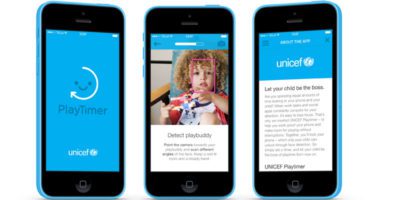Laurie Pickard created the No-Pay MBA website to share her experience doing the equivalent of a complete MBA degree using free online courses. She lives in Kigali, Rwanda, where she works as an international development professional, specialising in rural enterprise development and entrepreneurship.

“…Though the MOOC model of education is still fairly new, it offers a great opportunity for people seeking to advance their careers, at little to no cost. So far, more men than women have seized on this opportunity, but MOOCs have the potential to be particularly beneficial to women, who tend to take more career detours than their male colleagues…”
What are MOOCs?
Massive open online courses, or MOOCs, emerged in 2012 when a few pioneering universities began giving away free versions of popular courses to anyone with an internet connection. Massive – because enrollments are typically in the thousands; open – because anyone can sign up; online, of course; multi-week, professor-taught courses from top universities around the world. Coursera, Udacity, and edX were the first sites to offer MOOCs, but the Big Three are now joined by many more providers.
An opportunity for career advancement
Whether you got your degree in Renaissance Poetry, took time off to travel the world or raise a family, or uprooted to follow a partner or spouse, you may find your career could benefit from an infusion of new skills.
Even if your career is gold-plated, you may still find advantages in additional training. After all, the world changes, and employers desire new skills, some of which (growth hacking?) didn’t even exist when I went to university – not so very long ago.
Though the MOOC model of education is still fairly new, it offers a great opportunity for people seeking to advance their careers, at little to no cost. So far, more men than women have seized on this opportunity, but MOOCs have the potential to be particularly beneficial to women, who tend to take more career detours than their male colleagues.
How you can use MOOCs
If you want to try out using free online courses to advance you career, I suggest the following:
Determine what kind of training is right for you
Maybe you want to beef up your data analysis skills, or learn new marketing techniques. Perhaps you’re considering starting your own business and need some practical tools for that endeavor. Whatever your goals, identify the training that can bring you closer to reaching them.
Explore the course offerings
Type “MOOC” into your browser’s search bar, and you may be overwhelmed by the sheer volume of information that comes up. Take some time to sift through the courses available through various providers. Start with Coursera, edX, and Udacity, but also be open to newer providers like Future Learn, Canvas Network and Open2Study. Some universities even offer their courses directly through their own websites.
Register for courses
Be picky about your courses. If your goal is career advancement, the best courses are those that emphasize concrete, practical skills. Also, aim for courses that reach some level of depth, rather than providing merely an overview of a topic.
Make time for your course work
Make sure you’ve carved out sufficient time in your schedule to keep up with course work. I typically budget about four hours per week per course. Also, make sure you understand how the course schedule works – some courses are self-paced, while others require assignments be turned in according to strict deadlines.
Achieve mastery
It’s important to put new skills into practice as quickly as possible, whether you’re able to use your skills at your current job, on a personal project, or through volunteering.
Promote your new learning
Once you’ve finished your course work, be sure to list your new skills on your resume and your LinkedIn profile. You can also mention to your current employer that you’ve taken coursework applicable to your job, and that you’re anxious to take on new responsibilities to match your new skills.
Whatever your career goals are, you can likely find the training you need online at little or no cost. While MOOCs are still quite new, more and more people are recognizing just how valuable free courses can be.
https://www.facebook.com/nopaymba






